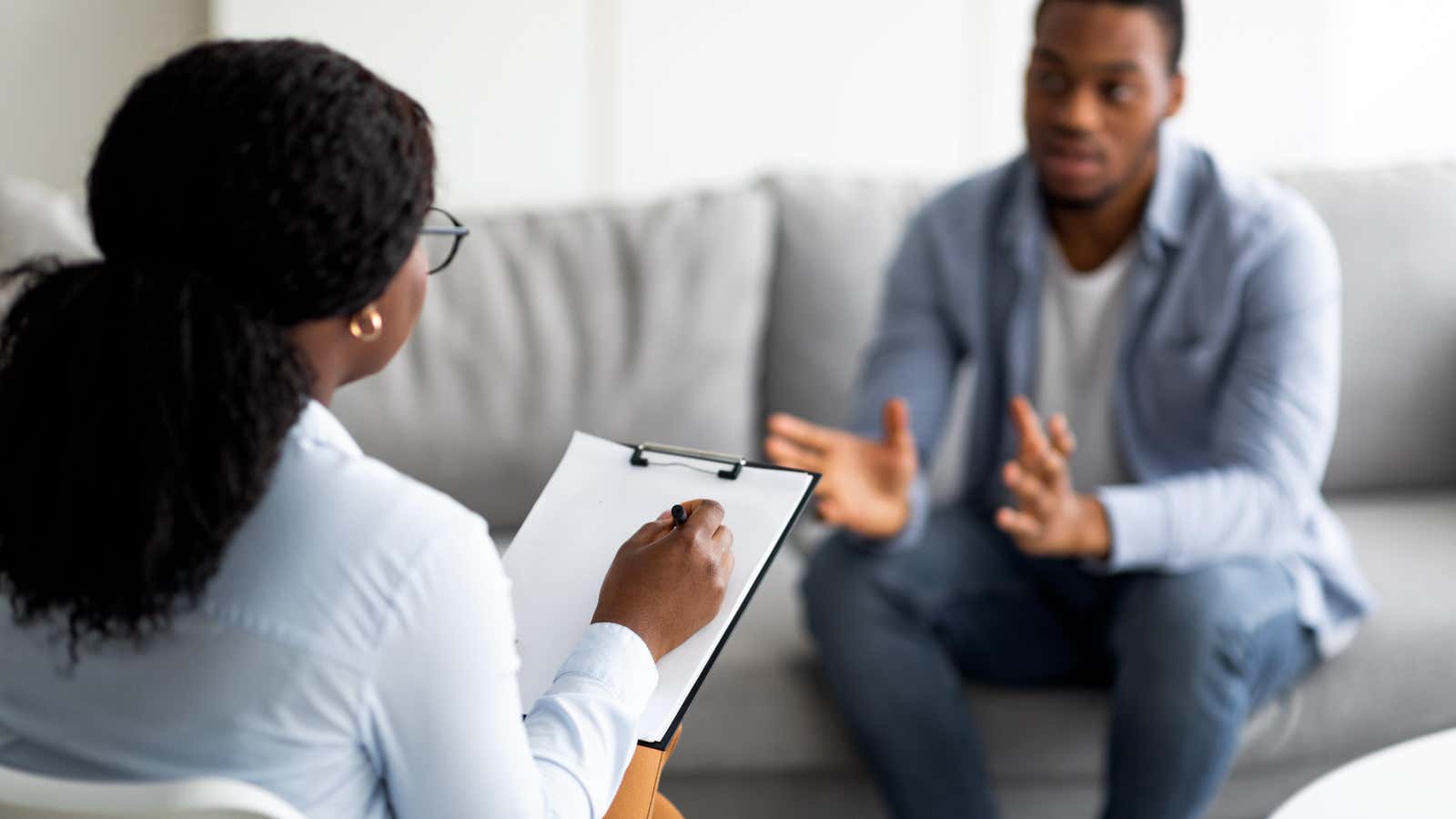Why You Should See a Therapist Even If You “Don’t Need One”

Although the stigma associated with mental health and therapy is disappearing , it still exists. Many people think of therapy as something you only turn to when you’re actively struggling with your mental health, or something that only weak and unfortunate people use. For people who go into therapy for one reason or another, one of the most surprising side effects is the sudden discovery of how many people in their personal and professional circles are also in therapy, and have been for many years. At this point, it’s almost a joke: everyone goes into therapy, and everyone is somehow ashamed of being in therapy.
There are more and more convenient options in terms of online therapy platforms and providers – when you live in an era where you don’t even have to leave your home to self-care, there is literally no excuse not to at least consider the benefits of therapy. That’s why you should see a therapist, even if you don’t think you have any mental or emotional need for one.
Therapy can act as a preventative medicine
Essentially, therapy has two main uses: it is used either to treat disease or to improve well-being. What most people think about therapy is part of the illness: someone is depressed, so they go to a therapist for treatment. This is where this persistent stigma around therapy comes from, the assumption that it can only be used to treat a problem.
But therapy, like any medical intervention, can and should be used for preventive purposes. If you visit your doctor once a year for check-ups, visit your dentist twice a year for cleanings, and rush to a specialist when you have symptoms, why not go to a therapist at least once? ? Seeing a therapist when you are doing well can provide a basic level of mental functioning that will be incredibly helpful as you age and face life’s challenges. In the same way that your doctor tracks your test results to see problems at their earliest stages, seeing a therapist can help you recognize bad habits, self-destructive behaviors, and unsustainable cycles before they start to overtly affect your mental health.
In fact, research has shown that simply verbalizing our feelings makes them more manageable and also elicits a wide range of beneficial physical responses in our brain and body. This is why we feel better when we have a deep emotional conversation with a friend or partner. Imagine that you have some level of this feeling on a regular basis and see how therapy can help anyone avoid crises.
Therapy helps you develop tools
Another benefit that therapy can bring to people who don’t think they “need” it is to identify patterns. We all have subconscious patterns and tools that we develop as coping mechanisms that are often invisible to us because we developed them organically many years ago – sometimes in early childhood. They become just part of who we are, so we don’t even notice them as patterns.
Because you are interacting with a trained professional, therapy can reveal these patterns to you, and knowledge is power. You may be successful and satisfied professionally and personally, but that doesn’t mean your behaviors aren’t a ticking time bomb. A good analogy is a baseball pitcher who is in terrible shape but manages to throw 100 mph fastballs – they may have early success but over time their bad physical habits start to deplete their effectiveness and all of a sudden after years of success they start getting fired upon. . Seeing a therapist can reveal the bad mental and emotional habits you’re compensating for long before they become a problem.
Therapy can also help you with specific problems that have nothing to do with mental illness, such as resolving conflicts, dealing with stress, and even improving your sleep.
Therapy Provides Objectivity
Finally, therapy provides what our personal support system cannot: objectivity. Everyone develops a support system in their life. Some are bigger than others, but we all have family and friends we can rely on, people we can talk to, people we can ask for advice. And that’s great and necessary, but your friends and family won’t always and always be objective because they emotionally invest in you and deal with their own biases, psychological patterns, and needs.
The therapist is an objective professional. You can befriend and befriend your therapist, but he is not your friend, and this gives him the ability to clearly see your behavior and the right to deal with problems the way they see them without worrying about hurting or angering you or harming your health . the senses. Even if you don’t have a diagnosed medical condition or struggle with depression, having an objective soundcard is an incredibly powerful tool that anyone can benefit from.
Therapy is not about failure. This is self-care. You may not “need” therapy in the sense of solving a problem, but that doesn’t mean you won’t benefit from it—and in fact, you have absolutely nothing to lose.